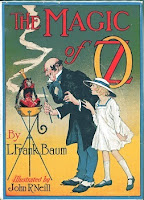Genetics
The science of genetics explains why living things look and behave as they do. Advanced animals have two sexes: male and female. Each individual produces sex cells. If a male and female sex cell join, the female cell grows into a new individual. Each parent passes on certain characteristics to its offspring. This process is called heredity.
Heredity works in an amazing way. Inside every cell are tiny chromosomes, largely made up of a chemical called DNA. Different parts of each chromosome carry different coded messages. Each part is called a gene. The genes carry all the information needed to make a new plant or animal. They decide its sex and also what characteristics it inherits.
Some inherited characteristics are stronger than others. They are dominant. Weaker ones are recessive. Genes for brown eyes, for example, dominate over the weaker genes for blue eyes.
1. What do we call the science of why living things look and behave as they do?
2. Which kind of animals have 2 sexes?
3. What does each parent pass on to its offspring?
4. What are the chromosomes largely made up of?
5. What are the different parts of the chromosome called?
6. What do we call strong inherited characteristics?
7. What do we call weak inherited characteristics?
Genetics
The science of genetics explains why living things look and behave as (1)they do. Advanced animals have two sexes: male and female. (2)Each individual produces sex cells. If a male and female sex cell join, the female cell grows into a new individual. (3)Each parent passes on certain characteristics to its offspring. (4)This process is called heredity.
Heredity works in an amazing (5)way. Inside every cell are tiny chromosomes, largely made up of a chemical called DNA. Different parts of each chromosome carry different coded messages. Each part is called a gene. The genes carry all the information needed to make a new plant or animal. (6)They decide (7)its sex and also what characteristics (8)it inherits.
Some inherited characteristics are stronger than (9)others. (10)They are dominant. Weaker (11)ones are recessive. Genes for brown eyes, for example, dominate over the weaker genes for blue eyes.
What do the reference words refer to in these sentences?
1. they:
2. Each:
3. Each:
4. This process:
5. way:
6. they:
7. its:
8. it:
9. others:
10. they:
11. ones:
How do each of these sentences connect to each other?
(1)Genetics
(2)The science of genetics explains why living things look and behave as they do. (3)Advanced animals have two sexes: male and female. (4)Each individual produces sex cells. (5)If a male and female sex cell join, the female cell grows into a new individual. (6)Each parent passes on certain characteristics to its offspring. (7)This process is called heredity.
(8)Heredity works in an amazing way. (9)Inside every cell are tiny chromosomes, largely made up of a chemical called DNA. (10)Different parts of each chromosome carry different coded messages. (11)Each part is called a gene. (12)The genes carry all the information needed to make a new plant or animal. (13)They decide its sex and also what characteristics it inherits.
(14)Some inherited characteristics are stronger than others. (15)They are dominant. (16)Weaker ones are recessive. (17)Genes for brown eyes, for example, dominate over the weaker genes for blue eyes.
How do each of these sentences connect to each other?
(1)Genetics
(2)The science of genetics explains why living things look and behave as they do. (3)Advanced animals have two sexes: male and female. (4)Each individual produces sex cells. (5)If a male and female sex cell join, the female cell grows into a new individual. (6)Each parent passes on certain characteristics to its offspring. (7)This process is called heredity.
(8)Heredity works in an amazing way. (9)Inside every cell are tiny chromosomes, largely made up of a chemical called DNA. (10)Different parts of each chromosome carry different coded messages. (11)Each part is called a gene. (12)The genes carry all the information needed to make a new plant or animal. (13)They decide its sex and also what characteristics it inherits.
(14)Some inherited characteristics are stronger than others. (15)They are dominant. (16)Weaker ones are recessive. (17)Genes for brown eyes, for example, dominate over the weaker genes for blue eyes.












